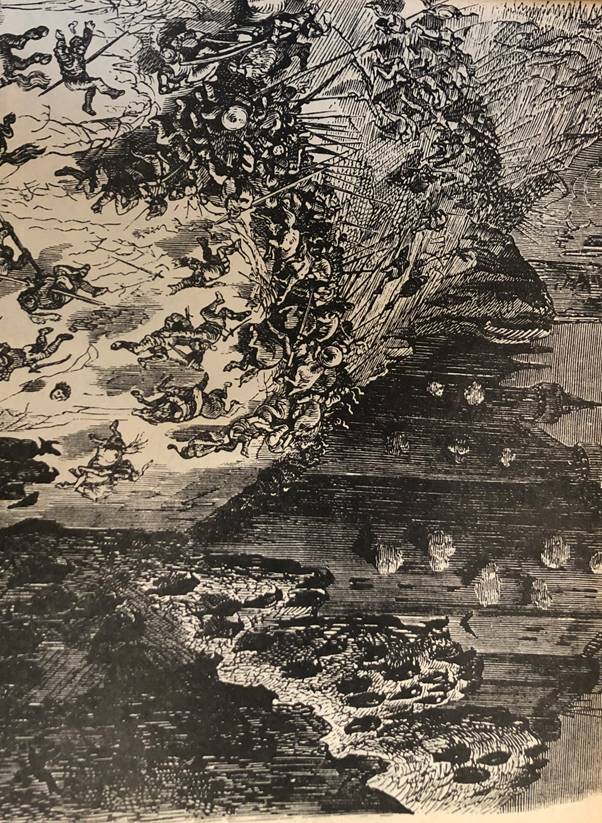Published in Labor Leader, Vol. 7, No. 1, May 1983, pp. 7; 14.

The prevention of war is a goal that everyone is, at least theoretically and emotionally, in favour of. However, when it comes to questions of ‘how can this be achieved?’ and, in given situations, ‘What should be done?’ there is a chatter of confusion.
At disarmament or ‘peace’ rallies it is the custom to proclaim: “We can rally the world’s peoples to oppose the arms race. The people can convince governments to stop squandering fortunes on the arms race!” Such proclamations sound optimistic and inspirational. But in spite of the general sentiment in favour of peace, the arms race has accelerated in the last decade. And despotic governments throughout the world have proven immune to moral pressure from Western audiences to forsake more [and more] expensive investment in armaments.
The sad fact is that the governments of most of the world’s people are dictatorships, intolerant of their neighbours and their own people. It is not only the case that the governments are undemocratic and intolerant. Many societies are also.
How much different would modern day Iran be without the Ayatollah ‘Caligula’, as Khomeini is popularly known? The likelihood is that without Khomeini there would be no advance in liberty and that the same kind of fanatical and brutal government would rule over Iran.
So long as patience, tolerance, understanding and goodwill are characteristics inapplicable to most societies, there exist the preconditions of war. Such characteristics are lacking in the Middle East, the Argentine, Ethiopia, Afghanistan, El Salvador – to name only a few areas of misery.
What follows from this observation is that in order to achieve peace on earth – if that is ever a possible achievement – everything must be done to encourage freer and more tolerant societies. Such societies are a necessary condition for ensuring an outbreak of peace.
‘How can the development or such societies be encouraged?’ is the question that needs to be faced. One way is to support the development of independent, free trade union movements. Another is to support ‘human rights’ as a key foreign policy objective.
The Labour Movement
The Australian labour movement can do its bit:
First, by supporting the International Confederation of Free Trade Unions (ICFTU), with which the Australian Council of Trade Unions (ACTU) is affiliated, in its endeavours to foster the formation and development of free trade unions. Such support could involve the training of third world trade union leaders in Australia and an increase in financial support by the ACTU to the ICFTU, particularly in the Pacific and South East Asian Regions.
Second, by supporting Amnesty International’s requests to world governments to release political prisoners, who are frequently imprisoned for trade union activity. The reason why this is so important is that workers and trade unionists are usually the first arrested when a new dictatorship is ushered into power or an existing one clings to office. In many countries fraudulent trade unions are established by the government to suppress genuine trade union demands. Amnesty International has documented countless cases of workers being incarcerated in prison or bundled off to psychiatric institutions for attempting to form free trade unions. Whether this occurs in the Soviet Union or in South Africa, the labor movement must be unyielding in its hostility.
Third, by trade union officials raising in overseas visits the plight of jailed or missing unionists to the governments or trade union organisations which they meet.
Fourth, by the Australian government condemning human rights violations wherever they occur.
Fifth, by calling on the Australian government to increase the amount of aid to third world countries. Assistance to the economies of third world societies is a vital requirement for the creation or democratic societies. Democracies are more stable on a lull stomach than on an empty one. In relation to this issue government should be careful to ensure that aid for butter is not converted into money for the purchase of guns, and that projects financed are closely monitored and supported to minimise the chances of corruption and to maximise the chances of success.
Sixth. by recognising that the free trade union movement is involved in an ideological battle – namely, the promotion of basic human rights and democratic values throughout the world. Unless the ideological battles are won, the prerequisites for war will be forever with us.
Seventh, by educating the labor movement in Australia of the importance and relevance of these ‘policies for peace’.
All of these proposals, if supported, would make for a moderately better world.
Oppression
So far this article has only sketched the outlines of what the labour movement might do for the cause of peace. Related to this are the issues associated with ‘disarmament’.
Much of the argument concerning disarmament is conducted without reference to the type of world we live in.
To return to an earlier point, oppression or dissent and disregard for pluralist values are part and parcel of most of the world’s societies.
Unless these characteristics are obliterated, then the dictators will rule, their armies will be ready to march, there will be no abatement of the conventional arms race. Some governments, desirous of reducing their ‘defence’ budgets, are in an impossible dilemma. If they were to disarm or significantly reduce their spending on weapons then the likelihood of invasion from a belligerent neighbour is considerably increased. So the temptation to purchase more and more weapons to thwart possible attack is the justification for a bloated defence budget.
In other words, unilateral disarmament by particular governments is not a realistic or a worthy option given the risk of subjugation. The ‘peace’ of the vanquished or hopelessly oppressed is not true peace.
Given such difficulties, any programme for disarmament should emphasise multilateral and verifiable agreements, encompassing conventional as well as nuclear arms. Preferably agreements can be reached between governments in various regions to reduce defence expenditure; such agreements would require supervision and verification, without which they would fail.
In relation to the nuclear weapons powers – the USA, USSR, China, France and Britain – the chances or reductions in nuclear arms spending depend on the trust between the powers that nuclear arms limitation agreements will be honoured.
An important word here is ‘limitation’. There seems little hope that the nuclear powers will beat all of their nuclear weapons into ploughshares. However, they may seek to limit the production or more weapons.
At least, if there is a diversion of resources by governments away from the nuclear industry to socially useful areas, this would be a significant achievement.
With regard to the ‘conventional’ arms race, verification of the kinds of weapons produced is also required.
According to the Stockholm Peace Foundation’s last annual report, the Soviet Union and the United States between them supply over 65% of the arms trade in the world. Last year the Soviet Union supplied slightly more arms to its clients compared to the United States. The arms export industries are significant to the economies of the world’s two super powers.
Realism
A diminution in the growth of these arms export industries is not likely unless there are arrangements – again multilateral and verifiable agreements – between the Western and Eastern bloc countries to limit the supply of armaments.
This article has attempted to highlight some issues important to a realistic peace movement, some of which are not considered in many of the utterances of publications of professional ‘peace activists’ or ‘peace’ organisations.
Nothing will be achieved in Australia if ‘peace organisations’ are dominated by extremist political interests, such as occurred in the 1950s and 1960s with the discrediting influence of the Communist Party in various peace bodies, e.g., the Australian Peace Committee. Such elements are not absent in existing and emerging ‘co-coordinating’ peace bodies.
Realism about aims and methods, and a determination to avoid the trap of far-left rhetoric are important tests for assessing a genuine peace organisation.
Success in Australia in arousing interest in practical steps towards peace and disarmament also depends on the development of a world-wide peace movement. However, one need look no further than the cities of Moscow, Peking, Johannesburg or Santiago, and contemplate what would be the fate of a march for peace and disarmament in one of those cities to arrive at a sober conclusion.
Postscript (2015)
Alan Boulton, then the legal officer of the Australian Council of Trade Unions, among others, rang me to say they enjoyed reading this piece. He understood why I wrote and what I set out to do in argument. Instead of dismissing the peace movement as irredeemably contaminated by the far left, I wanted to set out a positive case: what a social democrat realist would think of the issues.







